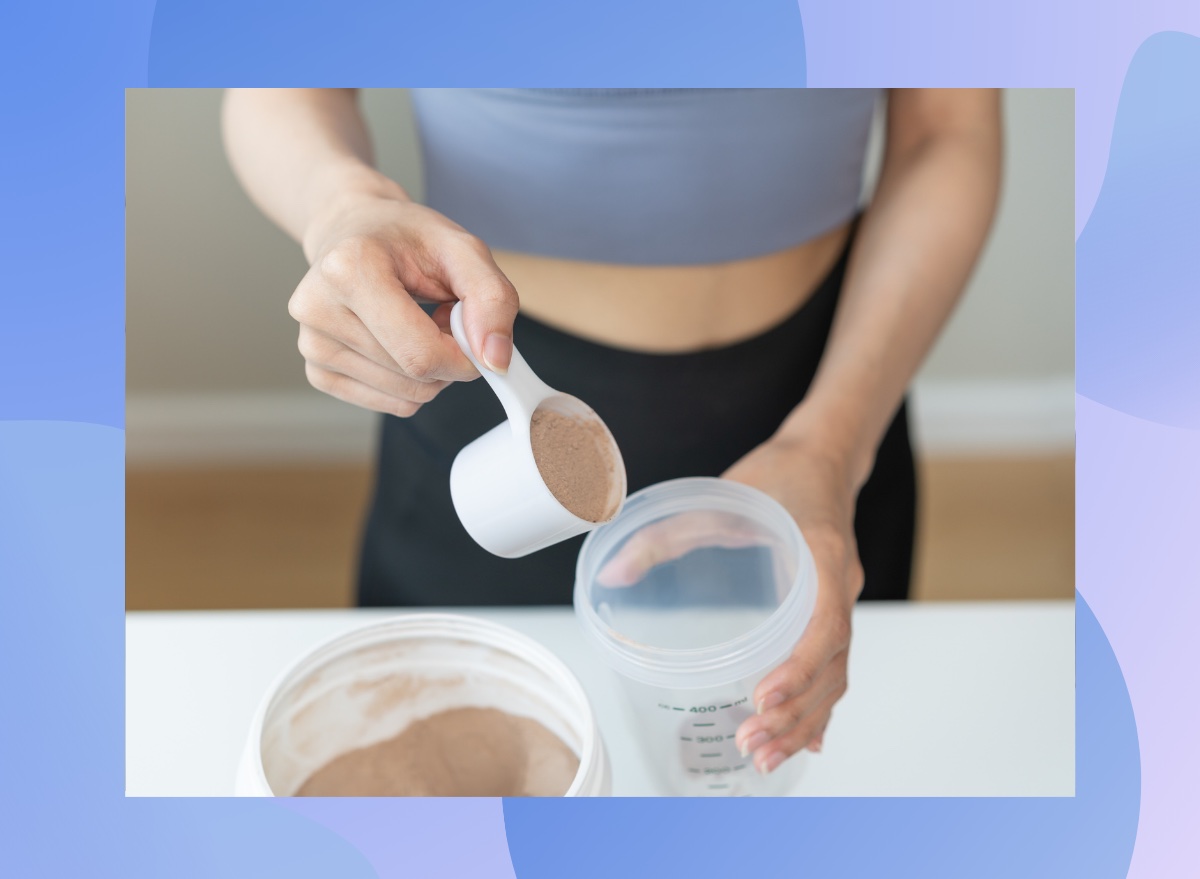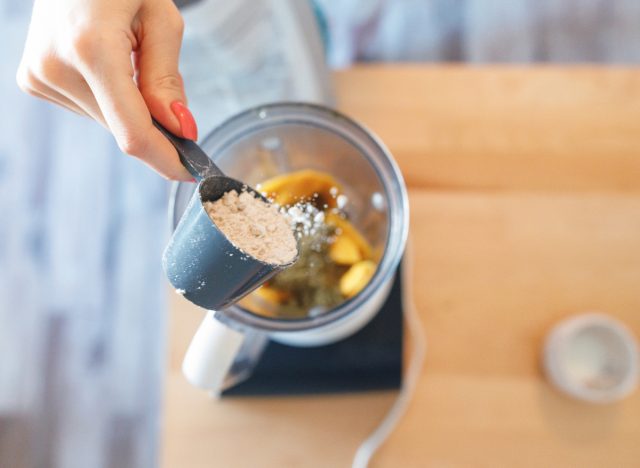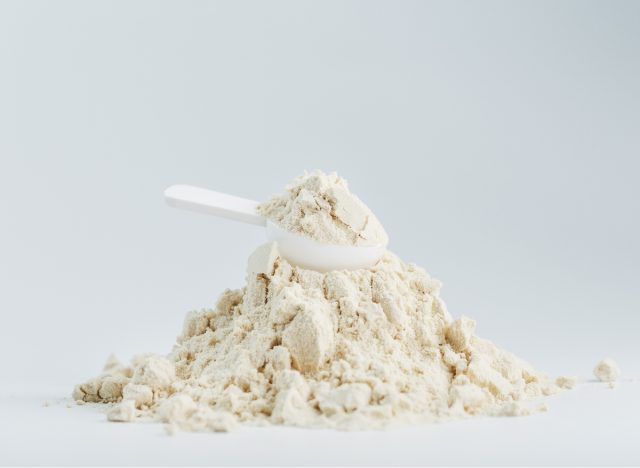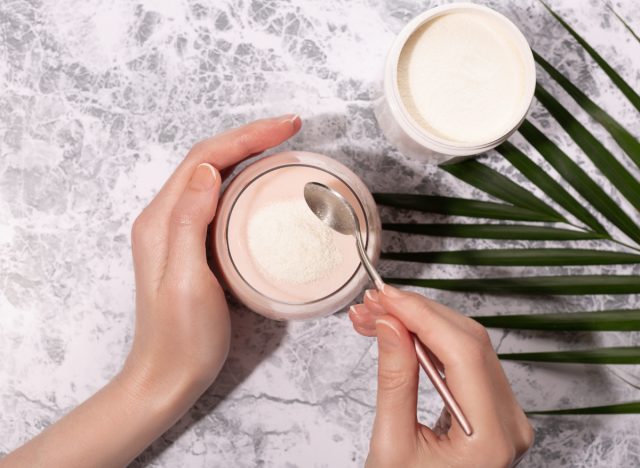Here’s What Protein Powder Does To Your Waistline

Whether you’re a gym-goer or simply love whipping up fresh fruit smoothies, we’re willing to bet protein powder is a regular part of your routine. Plus, incorporating protein powder into your diet is a foolproof way to get a dose of protein—especially if you’re trying to consume more. However, if weight loss is on your mind, you’re likely reevaluating many of your current diet habits. You may wonder what protein powder does to your waistline and whether your go-to protein powder can make you gain weight.
We spoke with Tami Best, MS, RDN, IFNCP, a functional and integrative registered dietitian from Top Nutrition Coaching, who reveals how protein powder can impact your waistline. Continue reading to learn more, and when you’re finished, don’t miss A Dietitian’s #1 Smoothie Recipe for Weight Loss.
What makes protein powder a beneficial addition to your diet?

For those who are looking to build muscle, manage their weight, or lead an all-around healthy lifestyle, protein powder can be a stellar diet addition and make snack time more seamless (and nutritious). In addition, protein helps fill you up, which can prevent unhealthy cravings or overeating during your next meal.
“Protein is needed to produce hormones, enzymes, and chemical messengers,” Best tells Eat This, Not That! “It is required to maintain muscle and skeletal health as well. When time and options are short, protein powder can be great at filling a gap.”
Here’s what protein powder can do to your waistline:

As with any packaged food, it’s crucial to be a smart label reader when shopping for protein powders, as sneaky ingredients can lead to weight gain.
“Assessing the ingredient list of protein powders is necessary,” Best stresses. “Generally, choosing protein powder with fewer ingredients is going to be a better choice. Protein powder with a lot of added sugar, artificial sweeteners, and gums have the potential to have negative impacts on gut health and blood glucose regulation and promote weight gain as opposed to weight loss.”
Opting for clean protein powders with few ingredients is the name of the name. (Make sure they’re also third-party tested for purity, potency, and identity.) Best recommends choosing powders that are sourced from organic produce or organic, pasture-raised animals. This can offer a protein boost, aiding in satiety and appetite control.
“Likewise, protein powder used post-workout can be a great tool to provide your body with the building blocks needed to rebuild and repair broken down muscle fibers, making them leaner and stronger,” Best adds. “Higher levels of lean body mass are associated with a higher metabolic rate which can help facilitate a leaner waistline. Studies have shown that consuming more protein in general is associated with an increase in weight loss.”
When should you consume protein for weight loss?

Having protein early in the day can bump up the benefits of fighting against obesity, Best says. “Many traditional American breakfasts are low in protein, creating the conditions for overeating and weight gain for the remainder of the day,” she explains. “Utilizing a high-quality protein powder to boost the protein content of foods can be helpful to shift the macronutrient balance. Consider adding protein powder to overnight oats, yogurt, or smoothies.”









